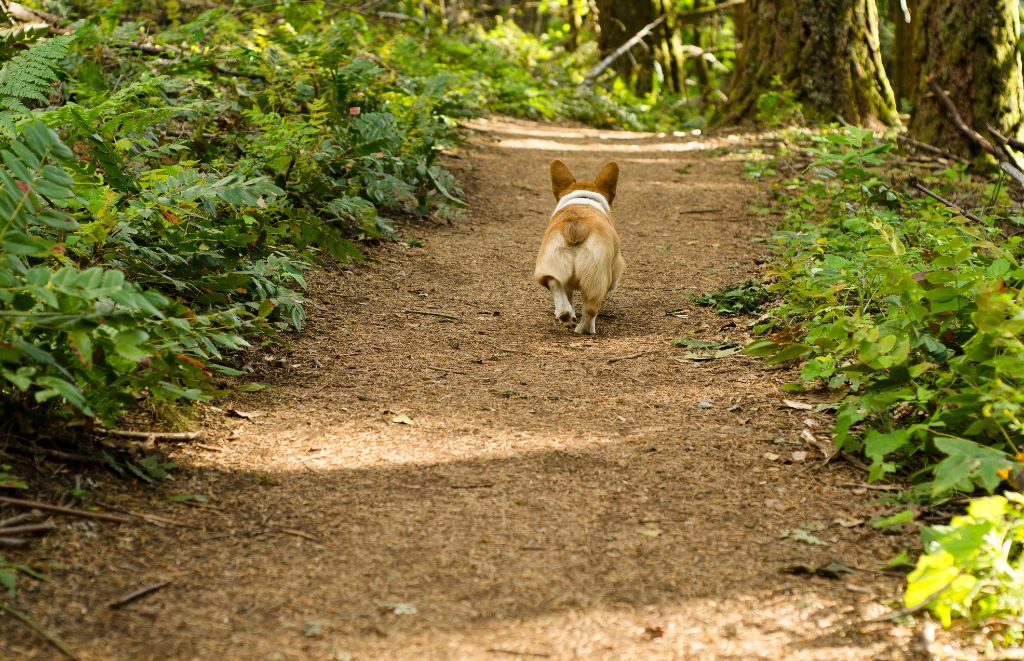We all love our furry friends, and as much as we want to be with them 24/7, life happens, and sometimes our dogs are left to their own devices. While a cozy nap is always on their agenda, too much idle time can lead to something many dog owners overlook—boredom. Just like us, dogs can get bored, and when they do, they might start engaging in some not-so-adorable behaviors. But don’t worry! In this article, we’ll explore the signs of doggy boredom, the reasons behind it, and most importantly, how to keep your pup entertained and happy.
What are the Signs of Doggy Boredom?
If your dog could talk, they might say, “I’m bored, human!” But since they can’t, they show it in other ways. Here are some telltale signs that your dog might be suffering from a case of the blues:
Destructive Behavior
One of the most common signs of a bored dog is destructive behavior. If you come home to find your favorite shoes in tatters, furniture scratched up, or your garden looking like a war zone, your dog might be trying to tell you something. Chewing, digging, and scratching are all ways dogs entertain themselves when they have nothing better to do.
Excessive Barking
Is your dog barking more than usual, even when there’s no apparent reason? Excessive barking is another sign of boredom. Dogs often bark out of frustration, and if they’re not getting enough mental or physical stimulation, they’ll find other ways to express their pent-up energy.
Restlessness
A bored dog is often a restless dog. You might notice your pup pacing around the house, unable to settle down, or following you everywhere, hoping for some interaction. This restlessness can also manifest as a lack of sleep or constant shifting around when they should be relaxing.
Attention-Seeking Behavior
Does your dog constantly nudge you with their nose, paw at you, or drop their toys in your lap? While this behavior is cute and endearing, it can also be a sign that your dog is bored and craving attention.
Compulsive Behaviors
In some cases, boredom can lead to compulsive behaviors like licking or chewing on themselves excessively. This isn’t just a sign of boredom but could also indicate anxiety, so it’s essential to address it sooner rather than later.
Why Do Dogs Get Bored?
Understanding why dogs get bored is the first step in preventing it. Dogs, like us, need a balance of physical activity, mental stimulation, and social interaction to stay happy and healthy. Here are some common reasons why your dog might be feeling bored:
Lack of Physical Exercise
Dogs have a lot of energy, and if they don’t have an outlet for it, they can quickly become bored. Regular walks, playtime, and outdoor adventures are crucial for keeping your dog engaged and healthy. If your dog is left to lounge around all day with no exercise, they’re bound to get restless.
Insufficient Mental Stimulation
Dogs are intelligent creatures, and they need mental challenges to keep their minds sharp. Without activities that engage their brain, such as puzzle toys or training sessions, they can become bored and frustrated. Dogs, especially working breeds, thrive on having a job to do.
Being Left Alone for Extended Periods
Dogs are social animals, and being left alone for long periods can lead to boredom. If you work long hours or are often away from home, your dog might start to feel lonely and bored, leading to some of the destructive behaviors mentioned earlier.
Lack of Social Interaction
Dogs need to socialize with other dogs and people. Without regular social interaction, they can become bored and even develop behavioral issues. Playdates, visits to the dog park, and doggy daycare are great ways to ensure your dog gets the social time they need.
How Can I Keep My Dog Mentally Stimulated?
Keeping your dog mentally stimulated is just as important as giving them physical exercise. Here are some effective strategies to engage your dog’s mind:
Puzzle Toys
Puzzle toys are a fantastic way to challenge your dog’s brain. These toys require your dog to think and solve problems to get a reward, usually in the form of a treat. There are many different types of puzzle toys available, from simple treat-dispensing balls to more complex puzzles that require multiple steps to solve.
Scent Games
Dogs have an incredible sense of smell, and scent games are a great way to tap into this natural ability. Hide treats or favorite toys around the house or yard and encourage your dog to find them. This game not only stimulates their mind but also allows them to use their natural instincts.
Interactive Play
Interactive play with your dog, such as fetch, tug-of-war, or hide-and-seek, is another excellent way to keep them mentally engaged. These games require your dog to think, follow commands, and burn off energy—all while having fun with you.
Training Sessions
Training sessions aren’t just for teaching new tricks; they’re also a great way to keep your dog’s mind sharp. Whether you’re working on basic commands or more advanced tricks, regular training sessions provide mental stimulation and strengthen the bond between you and your dog.
What Activities Can Help Alleviate Boredom?
Keeping your dog entertained doesn’t have to be complicated. Here are some activities and games that can help prevent boredom and keep your dog happy:
Regular Walks and Runs
This one’s a no-brainer, but it’s worth mentioning. Regular walks and runs are essential for your dog’s physical and mental health. Vary the routes and explore new areas to keep things interesting for both of you.
Dog Sports
If your dog is high-energy and loves to stay active, consider getting involved in dog sports like agility, flyball, or dock diving. These activities provide excellent physical exercise and mental stimulation, and they’re a great way for you to bond with your dog.
Training New Tricks
Teaching your dog new tricks is a fun way to keep them engaged and entertained. Not only does it challenge their brain, but it also strengthens your relationship. Plus, who doesn’t love showing off a dog that knows how to roll over or play dead?
Outdoor Adventures
Take your dog on outdoor adventures, such as hiking, swimming, or exploring new parks. The sights, sounds, and smells of a new environment are incredibly stimulating for dogs and can help alleviate boredom.
How Important is Socialization for Dogs?
Socialization is key to preventing boredom and ensuring your dog is well-adjusted and happy. Here’s why socialization matters:
Building Confidence
Socializing your dog helps them become more confident and comfortable in different environments and situations. A well-socialized dog is less likely to develop behavioral issues and is more adaptable to changes in their surroundings.
Preventing Loneliness
Dogs are pack animals, and social interaction is vital for their well-being. Regular playdates, trips to the dog park, or enrolling them in doggy daycare can provide the social interaction they crave and prevent boredom.
Encouraging Good Behavior
Socialization helps your dog learn how to interact appropriately with other dogs and people. This is crucial for preventing issues like aggression, fearfulness, or excessive shyness, which can all stem from a lack of socialization.
What Should I Do if My Dog Shows Signs of Anxiety?
It’s important to differentiate between boredom and anxiety, as they can sometimes manifest in similar ways. Here’s how to tell the difference and what to do if your dog is anxious:
Recognizing Anxiety
Anxiety in dogs can look a lot like boredom but is usually more intense. Signs of anxiety include excessive panting, trembling, hiding, whining, and destructive behavior that occurs specifically when you’re not home. If your dog is showing signs of anxiety, it’s essential to address it as soon as possible.
Addressing Anxiety
If you suspect your dog is anxious, consider the following steps:
- Create a Safe Space: Provide a comfortable and secure area where your dog can retreat when they’re feeling anxious.
- Increase Physical Activity: Exercise can help reduce anxiety by burning off excess energy and promoting relaxation.
- Calming Aids: There are various products available, such as calming sprays, anxiety wraps, or even natural supplements that can help soothe an anxious dog.
- Professional Help: If your dog’s anxiety is severe, it may be time to consult a veterinarian or a professional dog behaviorist who can provide personalized advice and treatment options.
Can Boredom Affect My Dog’s Health?
Yes, boredom can have a significant impact on your dog’s physical and mental health. Here’s how:
Obesity
A bored dog that isn’t getting enough exercise is at risk of becoming overweight or obese. Excessive weight can lead to a range of health issues, including joint problems, diabetes, and a shortened lifespan.
Behavioral Issues
Boredom can lead to a variety of behavioral problems, such as aggression, excessive barking, and destructiveness. These behaviors can be frustrating for owners and harmful to the dog’s well-being.
Depression
Just like humans, dogs can suffer from depression. A bored dog with little to no mental or physical stimulation can become withdrawn, lose interest in activities they once enjoyed, and even develop physical symptoms like a loss of appetite.
How to Create a Boredom-Busting Environment at Home
Creating a stimulating environment at home is one of the best ways to keep your dog entertained and happy. Here are some tips:
Rotate Toys
Instead of giving your dog access to all their toys at once, try rotating them. This keeps things fresh and exciting, as your dog will feel like they’re getting a new toy every time you swap them out.
Provide Safe Chew Items
Chewing is a natural behavior for dogs, and providing safe chew items like bones or dental chews can keep them occupied for hours. Just make sure the items are appropriate for their size, chewing strength, and dietary needs. Avoid giving your dog anything too hard that could damage their teeth or items that could splinter and become a choking hazard. Look for durable rubber toys, specially designed dental chews, or even natural options like antlers or bully sticks, which can offer hours of entertainment and satisfaction.
Create a Stimulating Space
Your home should be an enriching environment for your dog. Set up an area where they can engage in different activities. For example, you could dedicate a corner of a room to puzzle toys or treat dispensers, a cozy bed for napping, and a space where they can safely look out a window. Dogs love to watch the world go by, so a view of the outside can keep them entertained. If possible, consider setting up a small dog-friendly garden with different textures, scents, and toys to explore.
-
 “Wrinkly Hearts” Dog Bed$58.51 – $159.71
“Wrinkly Hearts” Dog Bed$58.51 – $159.71 -
 “Purple Paw And Bone” Dog Bed$58.51 – $159.71
“Purple Paw And Bone” Dog Bed$58.51 – $159.71
Interactive Toys and Gadgets
There are plenty of interactive toys and gadgets available that can keep your dog engaged, even when you’re not home. Automatic ball launchers, treat-dispensing cameras, and motion-activated toys are all great options for providing mental and physical stimulation. These gadgets can be particularly useful for dogs who spend a lot of time alone, offering them a way to play and stay active.
Engage in Regular Training
Training sessions can be an ongoing part of your dog’s daily routine. You don’t have to stick to basic commands—introduce new tricks or even advanced obedience work to keep their mind sharp. Training not only prevents boredom but also strengthens the bond between you and your dog. Short, consistent training sessions are more effective than long, infrequent ones, so try to incorporate a few minutes of training into your daily schedule.
Invest in Doggy Daycare or a Dog Walker
If your dog spends long hours alone, consider options like doggy daycare or hiring a dog walker. Doggy daycare provides socialization, exercise, and mental stimulation while you’re at work. Alternatively, a dog walker can break up your dog’s day with a walk, giving them a chance to burn off energy and explore new environments. These services can significantly reduce your dog’s boredom and anxiety while you’re away.
Set Up a Safe Digging Zone
If your dog loves to dig, channel this behavior into a designated digging zone rather than having them tear up your flower beds. You can create a small sandbox in your yard filled with soft soil or sand, where they can dig to their heart’s content. Hide toys or treats in the digging zone to encourage them to use it. This gives your dog a constructive outlet for their digging instincts while protecting your garden.
Final Thoughts
Boredom is more than just a minor inconvenience for dogs—it can lead to destructive behaviors, anxiety, and even health issues. By recognizing the signs of boredom and taking proactive steps to keep your dog mentally and physically stimulated, you can ensure they lead a happy, healthy life. Whether it’s through puzzle toys, outdoor adventures, or socialization, there are countless ways to enrich your dog’s day and prevent boredom from setting in.
Remember, a tired dog is a happy dog. Regular exercise, mental challenges, and plenty of interaction will keep your dog content and well-adjusted. And in return, you’ll have a loyal companion who’s always eager to join in on the fun. So, mix things up, keep it interesting, and enjoy the process of discovering what makes your dog’s tail wag the most!
Sources and References
- Gibeault, Stephanie, et al. “Bored Dogs: How to Recognize Doggy Boredom (and Help!).” American Kennel Club, 9 Nov. 2023, www.akc.org/expert-advice/training/bored-dogs-how-to-recognize-doggy-boredom-and-help/.
- Bennett, Jacqueline. “Bored Dogs: How to Recognize Doggy Boredom (and Help!).” The Dog People, www.rover.com/ca/blog/bored-dog-how-to-tell-help-in/. Accessed 7 Aug. 2024.








